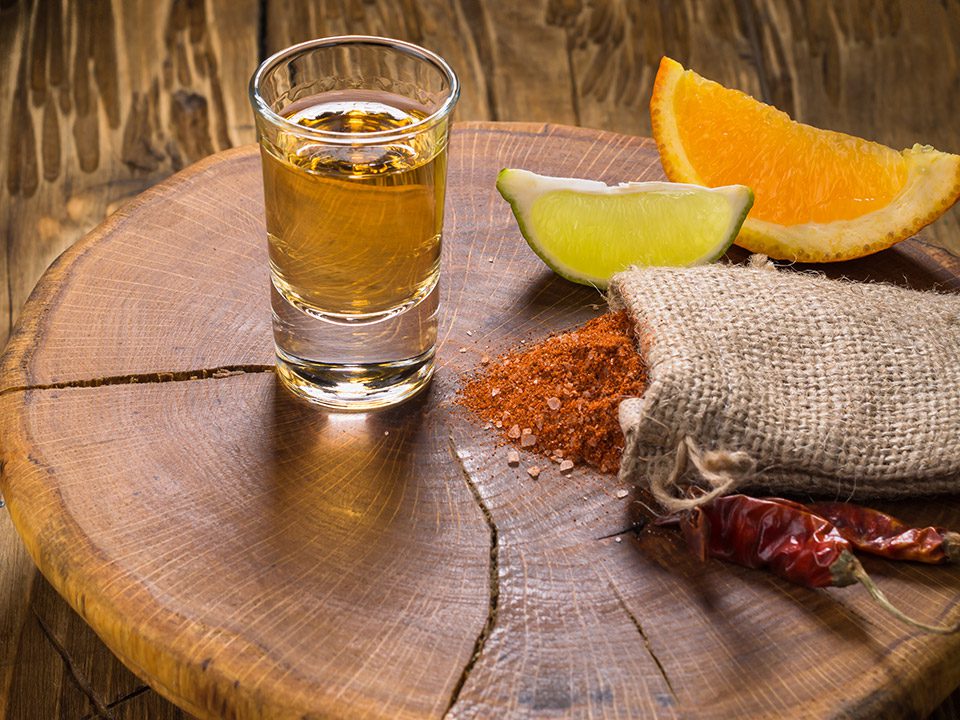Mezcal is a distilled alcoholic beverage made from the agave plant, which is native to Mexico. It has a long and rich history in Mexican culture, dating back to pre-Columbian times. The indigenous peoples of Mexico, such as the Zapotecs and the Mixtecs, were known to produce and consume various types of fermented agave beverages, including what we now call Mezcal.
The word “Mezcal” comes from the Nahuatl word mexcalli, which means “oven-cooked agave.” Mezcal is produced by roasting the agave hearts, or piñas, in underground pits for several days before crushing and fermenting them. This process gives Mezcal its distinctive smoky flavor, which sets it apart from other agave spirits.
Mezcal was traditionally consumed as a ceremonial drink, used in religious rituals and as a medicine. It was believed to have healing properties and was used to treat various ailments. Mezcal was also used as a symbol of hospitality and friendship, often served to guests as a sign of welcome.
Over time, Mezcal became more widely consumed throughout Mexico, and various regions developed their own unique styles and flavors. Today, Mezcal is an important part of Mexican culture, enjoyed at social gatherings, festivals, and other celebrations.
The differences between Mezcal and Tequila
Although Mezcal and Tequila are both made from the agave plant and are both distilled spirits, there are several key differences between the two.
The first and most obvious difference is the plant they are made from. Mezcal can be made from any variety of agave plant, while Tequila can only be made from blue Weber agave. This means that Mezcal can have a wider range of flavors and aromas, depending on the type of agave used.
Another difference between the two is the production process. Mezcal is traditionally made using a method called “pit-roasting,” where the agave hearts are cooked in underground pits lined with volcanic rock. This gives Mezcal its signature smoky flavor. Tequila, on the other hand, is typically made using an industrial process that involves steaming the agave hearts in large ovens. This results in a milder, more consistent flavor profile.
Mezcal and Tequila also have different aging requirements. Mezcal is often aged in oak barrels for several months to several years, while Tequila is usually aged for a shorter period of time, if at all. This aging process gives Mezcal a more complex flavor profile, with notes of wood, vanilla, and caramel.
Finally, Mezcal and Tequila are often consumed differently. Mezcal is often sipped neat or used in cocktails, while Tequila is more commonly consumed as a shot or in margaritas.
Facts and myths about Mezcal
Myth: Mezcal is the same thing as tequila.
Fact: Mezcal and tequila are both made from the agave plant, but they are made using different varieties of agave and different production methods. Mezcal can be made from any variety of agave, while tequila can only be made from blue Weber agave. Mezcal is also traditionally made using a pit-roasting method, which gives it a smoky flavor, while tequila is typically produced using an industrial process.
Myth: Mezcal is always served with a worm.
Fact: This is a common misconception. While some lower-quality Mezcal producers may add a worm to their bottles, it is not a traditional practice in Mexico. The worm, or gusano, is actually the larvae of a moth that lives on the agave plant, and it is not commonly found in Mezcal bottles.
Myth: Mezcal has a unique flavor profile.
Fact: Mezcal is known for its smoky, earthy flavor, which comes from the pit-roasting process. However, Mezcal can also have a wide range of other flavors and aromas, depending on the type of agave used and the production process.
Myth: Mezcal is a hallucinogenic drink.
Fact: This is a common misconception, but it is not true. Mezcal is an alcoholic beverage and does not contain any hallucinogenic properties. However, some people believe that Mezcal has spiritual and healing properties.
Myth: Mezcal has a rich cultural history in Mexico.
Fact: Mezcal has been an important part of Mexican culture for centuries and is deeply ingrained in religious and spiritual traditions. It is often used in offerings to the gods and is believed to have healing properties. Mezcal is also an important part of celebrations of life and death, such as the Day of the Dead.
Myth: Mezcal is a low-quality spirit.
Fact: This is not true. Mezcal can be produced using artisanal methods that result in high-quality, complex spirits. Some Mezcal producers use traditional methods, such as pit-roasting and stone milling, to produce small batches of Mezcal with unique flavor profiles.
Myth: Mezcal production is environmentally sustainable.
Fact: Mezcal is produced using a sustainable and eco-friendly process. The agave plant is drought-tolerant and requires little irrigation, making it a good crop for arid regions. In addition, the pit-roasting process uses wood from sustainable sources and produces few emissions.
Conclusion
In conclusion, Mezcal has a rich cultural history in Mexico, dating back to pre-Columbian times. It is made using a traditional pit-roasting method and can be made from a variety of agave plants, giving it a wide range of flavors and aromas. Tequila, on the other hand, can only be made from blue Weber agave and is typically produced using an industrial process. Mezcal is often aged for a longer period of time than Tequila, giving it a more complex flavor profile. Despite their differences, both Mezcal and Tequila are important parts of Mexican culture and are enjoyed by people around the world.


